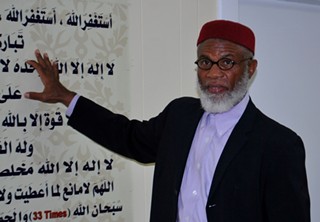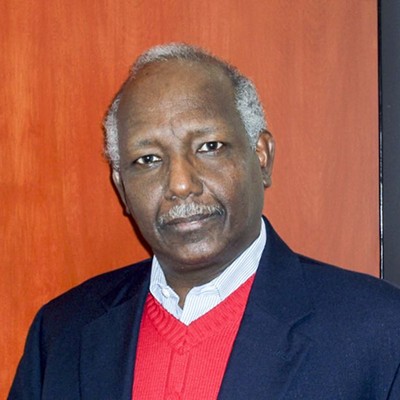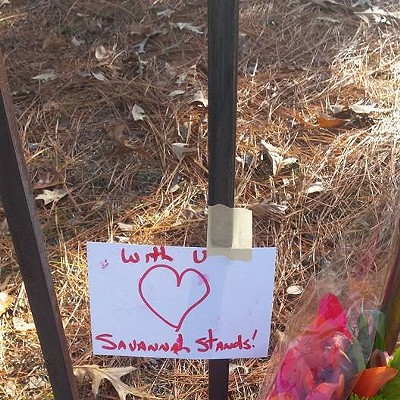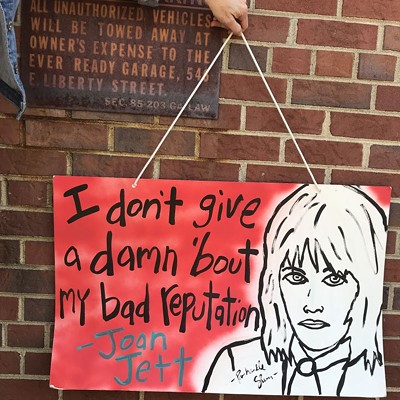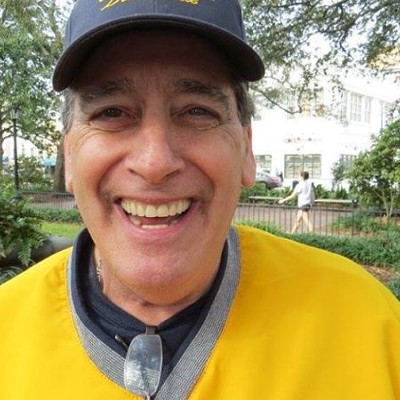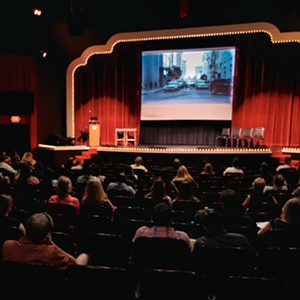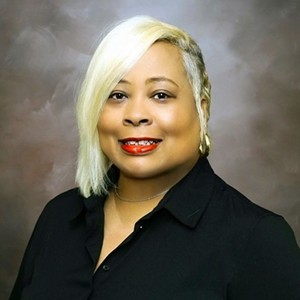The only sign is the first fingernail slice of the moon.
The observance of Ramadan began last Tuesday evening when that bright crescent rose into the sky, directing Muslims around the world to fast during daylight hours for the entire month. They will abstain from food, drink, sex, smoking and any other distraction until the next waxing sliver appears again.
Besides this heavenly body, there's no other décor necessary — no strings of lights wrapped around the eaves, no glitzy gifts, no fake animals on the lawn. Devoid of the tsotchke-filled flash of more familiar Western holidays, the significance of Ramadan might pass the rest of us by completely if we're not paying attention.
There are some who would dismiss it in a kind of willful xenophobic amnesia, as if the millions of Muslim Americans living throughout the country shouldn't be included in the greater cultural conversation. For them, it's too much work to reconcile Islam with their patriotic sensitivities, which I suppose is understandable — sad, but understandable, given the barrage of media negativity we're presented and the embrace of violence by extremists around the globe.
Me, I've always been curious about Ramadan's low profile. I grew up knowing how weird it is to be the only kid in class without a Christmas tree; I can only imagine how it must feel to have to explain why you're not eating lunch for the next four weeks.
If interest in life outside the accepted big-box, Wonderbread idea of mainstream America is what drives me to write this column every week, it's only reasonable that I'd be downright nosy about what it's like to be Muslim in Savannah.
Fortunately, Imam Maajid Faheem Ali doesn't mind questions. As the spiritual leader of Masjid Jihad, he shepherds 45 or so families who belong to the mosque, housed in a stately yellow mansion on 34th Street amid a row of regal homes that also includes the Savannah Buddhist Center. He views Savannah's pastors and rabbis as colleagues, and can often be found around town speaking at interfaith programs and diversity panels. He invites every opportunity to educate about Islam and dispel prejudice.
"It is our responsibility to provide the counter narrative," he enjoined as we padded in our socks across the plush teal carpet of the mosque's spacious prayer room.
With his white beard, red wool skullcap and Noam Chomsky's latest book tucked under his arm, Imam Ali might have stepped out of a tea room in Marrakesh. He is in fact Savannah born and bred, a graduate of Savannah State's political science program and a follower of Islam since 1974. Inspired by U.S. Chief Justice Thurgood Marshall and the local Civil Rights movement, he espouses the ideals of social equality alongside the tenets of the Quran.
He explains that because Ramadan follows the 33-year lunar cycle, it moves through the seasons, sometimes coming in winter when other folks are busy with other holiday traditions. This time around in the Northern hemisphere, however, it means fasting through the 15-hour dog days of summer.
"The next time it will come this time of year, I don't expect to be here," he shrugged with a grin. "But nothing's impossible."
While some Muslims rely on calculations, Imam Ali prefers to confirm the onset of Ramadan "just as Mohammed did, by the moon." The annual holy observance is one of the Five Pillars of Islam, which also include inner faith, praying five times a day, a practice of charity and at least one pilgrimage to Mecca. Those who are pregnant or ill are exempted from the obligation, though it is a time of giving and soul-searching for all. After the fast each evening, families and friends gather for a light meal — because no matter what you believe in, holidays should always revolve around the food.
Sitting with the imam and discovering much common ground between the tenets of his religion, mine and that of my Christian neighbors, I wondered how strife ever erupts at all. For all its cultural oddness, Savannah has always been religiously tolerant, rallying around the area's other mosque, the Islamic Center of Savannah, when arsonists torched it in 2004. In his four decades as a Muslim, Imam Ali says he has rarely experienced outward umbrage, though he often must explain that the "jihad" in his mosque's name refers to the inner struggle of the soul, not a holy war. ("There's no such thing," he admonishes.)
My basic curiosity quenched, I ventured tentatively into trickier territory: What about the women?
"The Quran emphasizes the importance of education," he declared, speaking with great pride about the accomplishments of his wife, Sakinah, and the various PhDs and Masters degrees among his three daughters.
I respectfully countered with the story of Malala Yousafzai, the 15 year-old Pakistani girl shot in the head by the Taliban for going to school. I alluded to the horrific gang rapes of female journalists in Eqypt's Tahrir Square and the pandemic violence against women seemingly inherent in Middle Eastern culture.
Imam Ali shook his head sadly. "That is not Islam."
We acknowledged that like the rest of the world's religions, the revelations of Islam are hijacked by hypocrisy and bastardized for power. It is a painful and messy process for all of us to tease out the political from the religious, the democratic from the tyrannical, as the good people of the world amble towards something like unaminity. And maybe one day, peace.
If Ramadan is the time for Muslims to turn inward, it is an opportunity for the rest of us to practice our commitment to the Golden Rule expressed by every sage from Moses to Jesus to Mohammed to Buddha to Confucius: Treat others as you would yourself — and your mama.
It is an ideal that seems much like the moon: A quiet, unadorned presence often obscured by everyday life, yet once glimpsed, might feel like it follows us everywhere.

